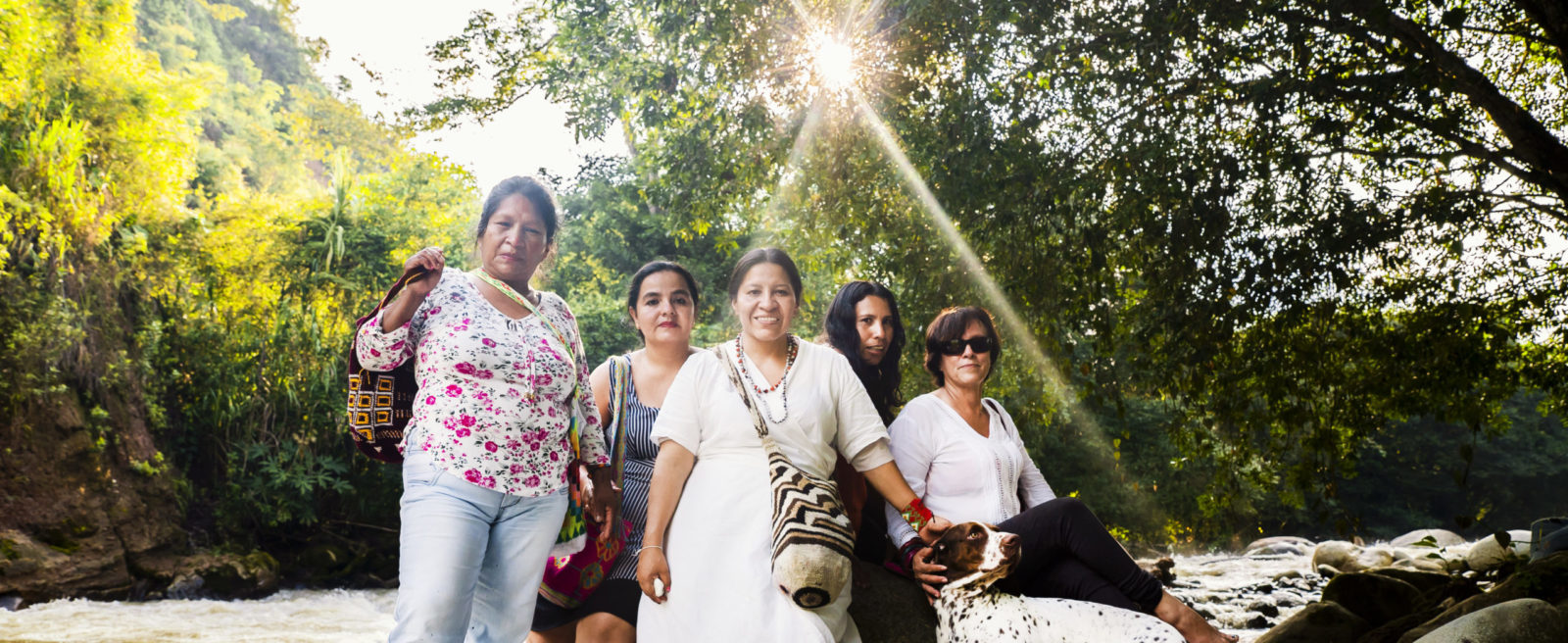We are channeling rapid and flexible financing to local civil society organizations in Colombia, strengthening women’s participation and leadership in peacebuilding and economic recovery while supporting women CSO leaders responding to COVID-19 on the front lines.
Our Work
In Colombia, WPHF is financing partners to enable women’s meaningful participation in the implementation of the gender provisions of the country’s peace agreement, while enhancing the livelihood opportunities and political participation of Venezuelan women refugees.
WPHF is also supporting local women’s rights and women-led organizations in Colombia with programmatic funding to respond to the gender dimensions of the COVID-19 global pandemic on the front lines.
Our Partners
WPHF has supported 24 projects implemented by 33 women-led and women’s rights civil society organizations in Colombia:
WPHF COVID-19 ERW Partners: Responding to COVID-19 in Crisis Settings
- Corporación Vamos Mujer on a project to support rural and urban women who have been particularly affected by the COVID-19 pandemic in 12 municipalities of Antioquia, including providing trainings on management, women’s rights and gender issues, as well as economic empowerment initiatives promoted and led by women, including provision of technical and administrative assistance for their consolidation.
- Fundación Chiyangua on a project providing communication capacitation and tools for Afro-Colombian women leaders in rural areas of Cauca so that they can lead as messengers for their communities on topics related to COVID-19 and SGBV prevention.
- Aldeas Infantiles SOS Colombia on a project to facilitate humanitarian access to food and other basic necessities for vulnerable women and mothers in the conflict-affected Chocó region of Colombia, while preventing and addressing GBV in times of COVID-19.
- Corporación Yo Puedo on a project to provide emergency aid to women and support over 30 grassroots organizations that will help women who are economically impacted by the COVID-19 pandemic. Including providing trainings on management, women’s rights and gender issues, and participating in coordination mechanisms established with authorities and local institutions to strengthen local capacities local capacities for humanitarian response.
- Red Nacional de Mujeres (Corporación Humanizar) on a project to support survivors of VAW, particularly through the provision of SRHR services, and to raise awareness with the broader public on domestic violence. The project will use a mobile app to provide women with information on COVID-19 measures and prevention, which can also be used by women to seek help in case of violence. Including medical and educational advice to women for Sexual Rights and Reproductive Rights, including the administration of contraceptive methods and follow-up to them.
- Corporacion Hombres en Marcha on a project to improve social response of men and women in the 13 sub-regions of Nariño to face the COVID-19 pandemic, with a focus on preventing domestic violence against women and promoting the participation of men in unpaid care activities.
- Red de Mujeres Chaparralunas por la Paz on a project to address the economic impacts of COVID-19 and strengthen the economic resilience of rural and indigenous women in southern Tolima. Including providing trainings on management, women’s rights and gender issues, and economic empowerment initiatives promoted and led by women.
- Asociación Flor de Kinde on a project to address the economic impacts of COVID-19 on 130 rural women in Nariño and their families. The project creates local, feminist, and sustainable development alternatives, in a COVID19 context, through implementing family agroecological farms and creating a native seed bank to rescue and promote women’s traditional knowledge.
Explore the Full List of WPHF COVID-19 Emergency Response Window Partners Around the World
covid-19 emergency response window projectsBackground
For over 50 years, Colombia has endured one of the longest civil wars in history. Violence disproportionately affected women and girls who account for the majority of the more than six million victims. Women were deprived of their most fundamental human rights, forced to flee their homes, and subject to conflict-related gender-based violence.
Over the last two decades, thanks to local women human rights defenders and the relentless efforts of women’s organizations, Colombian women have made important gains towards gender equality. This culminated in the recognition – by both the Colombian government and the FARC: parties to Colombia’s 2016 historic peace agreement – of the civil war’s acute impacts on Colombian women and girls and their crucial role in shaping inclusive and lasting peace.
Today, despite promising progress in the overall implementation of the 2016 peace agreement, the COVID-19 pandemic coupled with the Venezuelan refugee crisis is undeniably challenging peace and gender equality across the country. Since the start of the outbreak, in contexts of limited response capacities, women and girls – including women’s refugees – have been exposed to greater risks of violence (including harassment, domestic violence, sexual exploitation), while having faced restrained access to health services and the narrowing of their economic opportunities.
Our Vision
In Colombia, WPHF aims to ensure the financing and coordination of local civil society organizations working to empower women as key actors in peacebuilding and economic recovery efforts and respond to the COVID-19 pandemic, advancing progress on women’s meaningful contributions to sustainable peace across the country.
